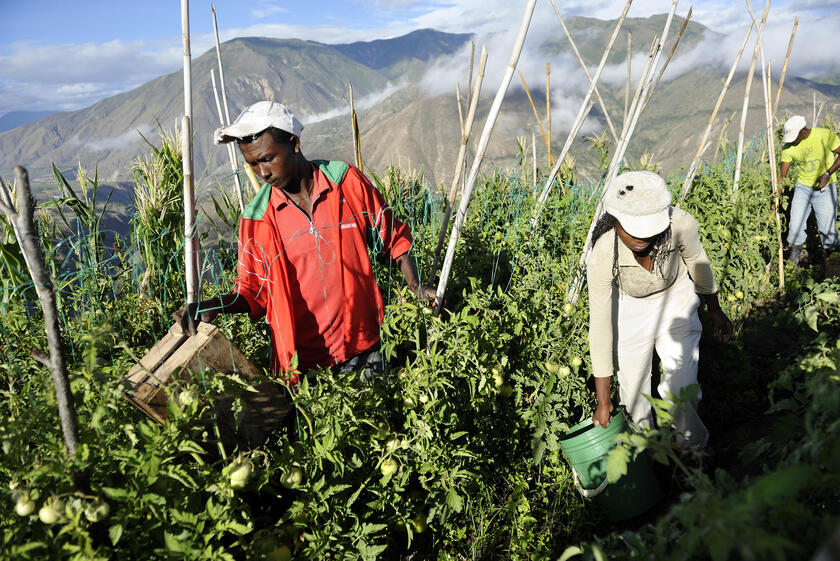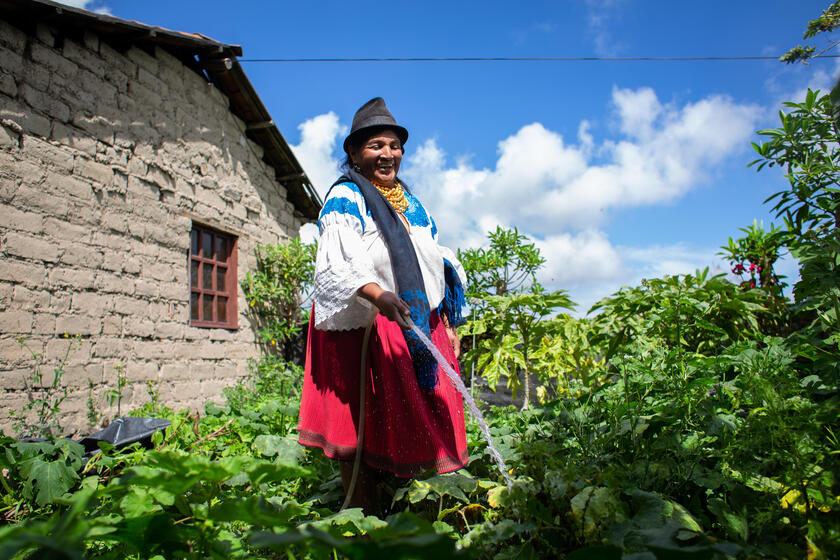Food sovereignty for small farmers families

Berlin / Quito, 30 January 2020
Families in northern Ecuador who live from agriculture are among the most disadvantaged groups in the country. There is a lack of cultivable land, means of production and technical knowledge. Families of small farmers usually harvest only once a year, although two harvests would be possible. The result: poverty in the communities and malnutrition among many people. Together with local partners, Johanniter is committed to sustainable agriculture, food sovereignty and income security.
Sucumbíos is one of the poorest provinces in Ecuador, with 87% of the population living in poverty. In the neighbouring Andean highlands, in the provinces of Imbabura and Pichincha, the people are also frequently unable to satisfy their basic needs. Most families live from agriculture, but limited farmland and inefficient land use lead to low yields. The cultivation of monocultures and the excessive use of chemicals make the soil less productive every year. Many families are therefore moving their farmland to higher altitudes. This endangers the Andean mountain forests and reduces the availability of natural water resources. Extreme climate events also lead to considerable harvest losses. Women are the main victims. Although they do a large part of the agricultural work, they are not compensated and have no say in decisions.
Remedy through expert advice and better infrastructure
Together with our local partner organisation IEDECA, we support indigenous small farmers families in the provinces of Imbabura and Pichincha and in the neighbouring Colombian department of Nariño. In workshops, relevant knowledge about sustainable agriculture is passed on to them. Together with 730 beneficiary families, individual agro-ecological production systems are developed. One of the aims is to make optimal use of the available water resources in order to avoid crop failures in the long term. Specially installed water systems provide a solution to this problem. Small-scale farming and regional marketing structures are also being promoted. To this end, the women and men participate in workshops to learn how their products can be processed, what legal framework conditions apply and what marketing strategies are available. Specialist advisory services strengthen the participation opportunities and co-determination of indigenous small farmers families.
Focus in Sucumbíos is on women

In the province of Sucumbíos, we are implementing the activities for income security and food sovereignty with the local partner organisations Federación de Mujeres de Sucumbíos (FMS) and Instituto Superior Tecnológico Crecermas (ISTEC). They focus on marginalised groups, especially women and their children. The main aim is to show the families how to generate their own income with the harvests from their small gardens. In this context, the women learn how they can process their products further. A marketing network is being set up through which they can offer their products in the future.
International Assistance in Ecuador
In Ecuador, we support indigenous communities in the Andes region and strengthen their resilience in times of climate change. Women are encouraged to exercise their rights.